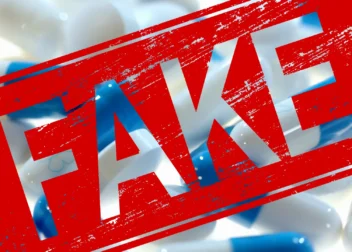New drug act to take pharma sector to greater heights
Source: Thedailystar
The new Drugs and Cosmetics Act 2023 will help the pharmaceuticals sector of Bangladesh get rid of adulterated and substandard medicines and climb to the next heights, manufacturers say.
The inclusion of rigorous punishment for offences will also be beneficial, they say. In the Drugs (Control) Ordinance 1982, there was no clause for punishment for adulteration of medicines.
On September 6, the parliament passed the Drugs and Cosmetics Bill 2023, replacing the ordinance, a development that manufacturers think will brighten the image of the pharmaceuticals sector tipped to be a major global hub for high quality, low-cost generic medicines.
The Act has provisions for life imprisonment for those found guilty of manufacturing, stockpiling and selling contaminated drugs.
It covers cosmetics whose production and distribution will be regulated and contains provisions to control the use of antibiotics, whose misuse is believed to be rife in the country.
New clauses have been included about the use of medical devices.
The Directorate General of Drug Administration (DGDA) will establish the Department of Drug Prosecution to enforce laws.
A fine of Tk 20,000 will be slapped for selling medicines without a doctor’s prescription. If a drug store sells medicines without a licence, sells government medicines, and imported ones without approval, a 10-year imprisonment or Tk 10 lakh in fine or both could be handed.
The Ordinance had handed a maximum fine of Tk 50,000 and a three-year rigorous imprisonment for the import of drugs or pharmaceutical raw materials without regulatory consent.
Up to a two-year imprisonment, a maximum fine of Tk 10,000, or both could be given if anyone is found to be selling medicines or pharmaceutical raw materials at prices higher than the maximum rates fixed by the government.
The new law contains 30 types of offences compared to six that were included in the Ordinance.
Offenders can be sentenced to life for the crimes such as the manufacturing of counterfeit and adulterated drugs as well as creating artificial shortages.
“Proper implementation of the new Act will help vanish the adulterated medicines from the market and boost the country’s image,” said Abdul Muktadir, managing director of Incepta Pharmaceuticals.
“Now, there will be no scope for manufacturing substandard medicines. This is the key feature of the law as the pharmaceuticals sector deals with public health.”
The noted entrepreneur said the new act was badly needed for the further development of the pharmaceuticals sector as it has emerged as an important industry and is winning the global market after meeting the domestic demand.
Currently, Bangladesh has a vast pharmaceuticals sector with 284 registered companies catering to the 98 percent demand of the $3.2 billion local market.
SM Shafiuzzaman, secretary general of the Bangladesh Association of Pharmaceutical Industries (Bapi), says the ordinance was a milestone in developing the pharmaceuticals sector.
“Now, if the Act is implemented properly, the pharmaceuticals sector will move to a greater height.”
He suggested regulatory agencies such as the DGDA and the Directorate General of Health Services play their due roles.
Muhammad Halimuzzaman, deputy managing director of Healthcare Pharmaceuticals Ltd, says the sector’s recommendations and expectations have been reflected in the new law.
“It was required for the further progress of the industry.”
Local manufacturers ship medicines to 150 countries in Asia, Africa, North America, South America and Europe, according to the Bapi. But the shipment is insignificant compared to the vast manufacturing prowess.
Exports fetched $175.42 million in the financial year that ended on June 30, down 7 percent year-on-year, data from the Export Promotion Bureau showed.
Manufacturers say Bangladesh is increasingly becoming a global hub for producing quality and low-cost generic medicines since many countries don’t have the facilities needed to make such drugs. Only two nations — China and India — along with the developed world have vast pharmaceutical manufacturing capabilities.



